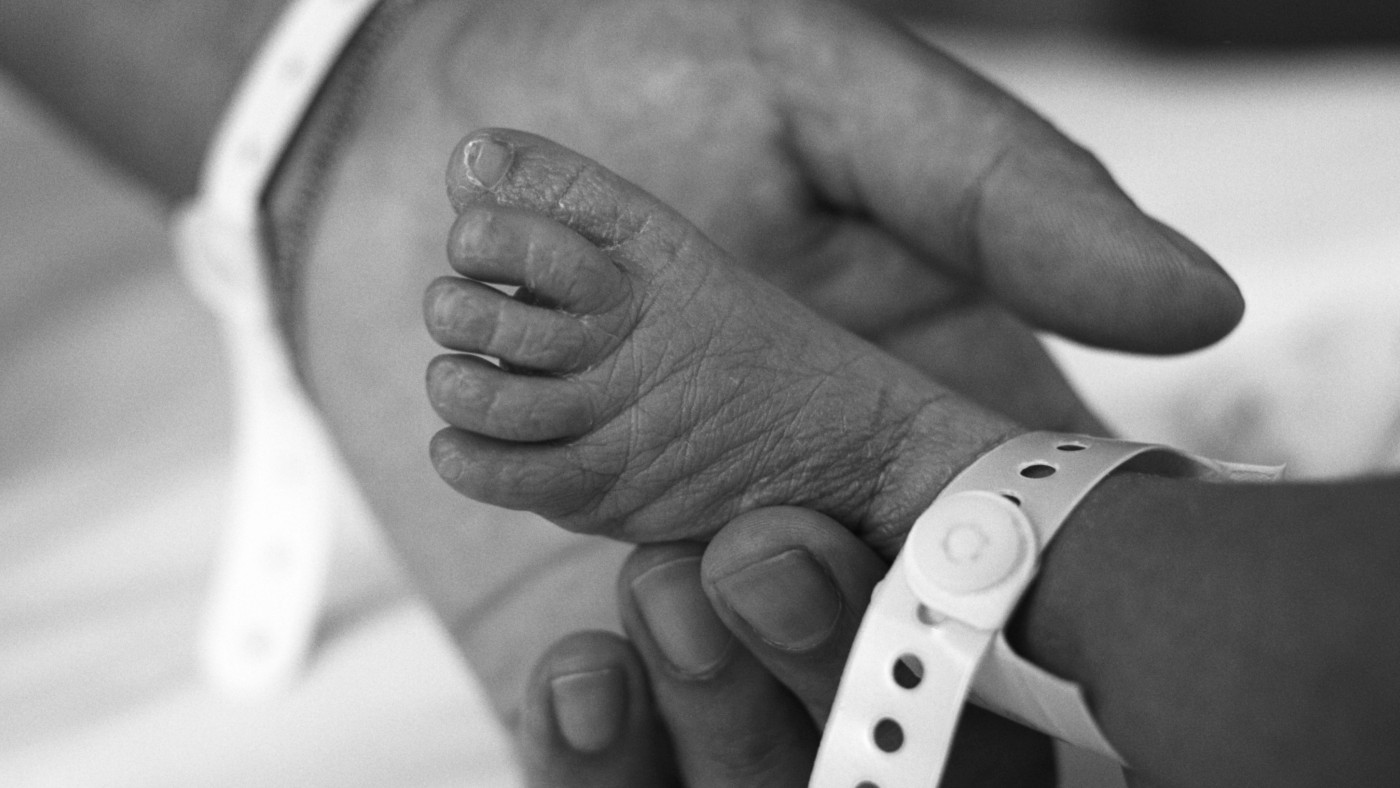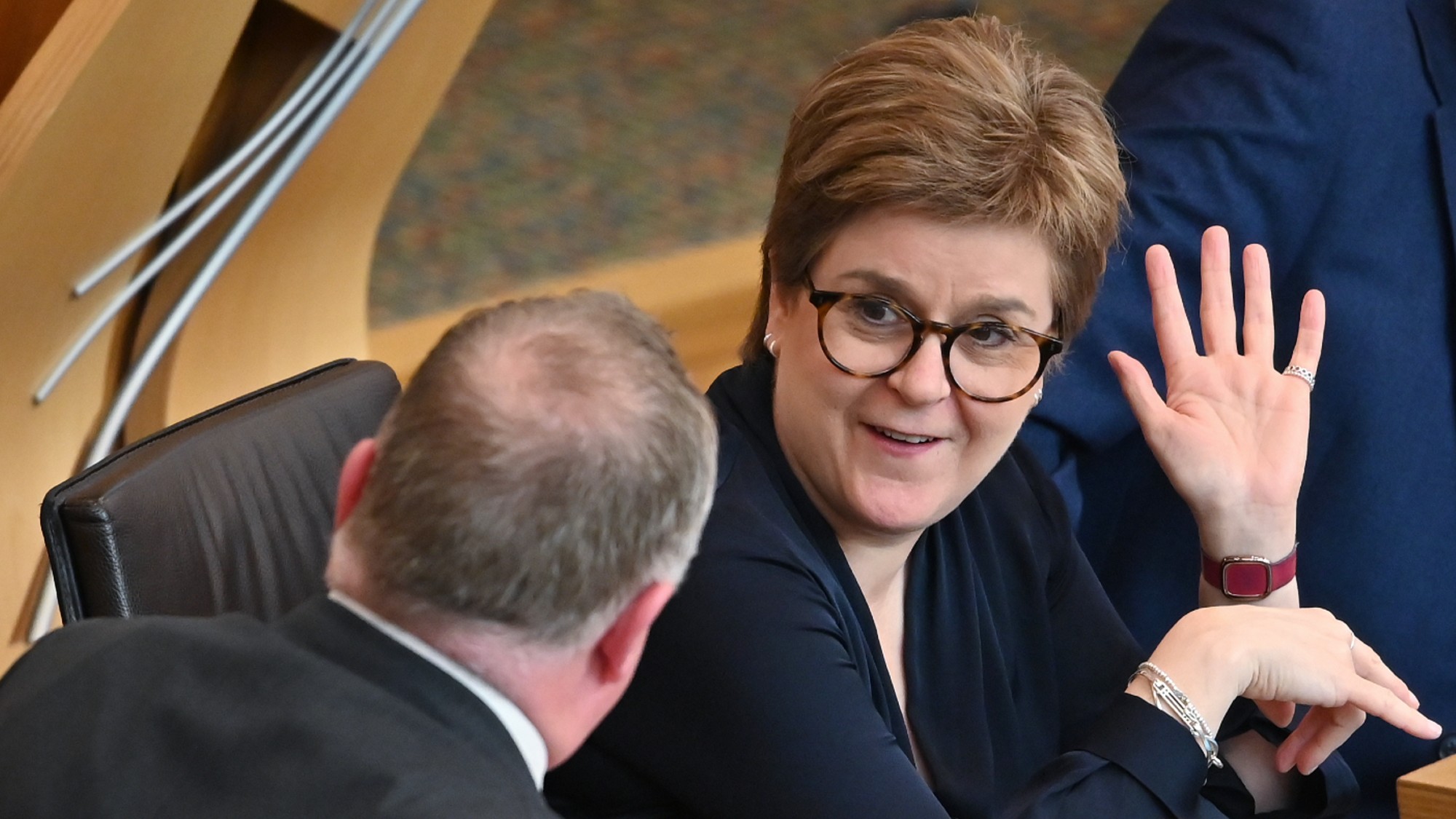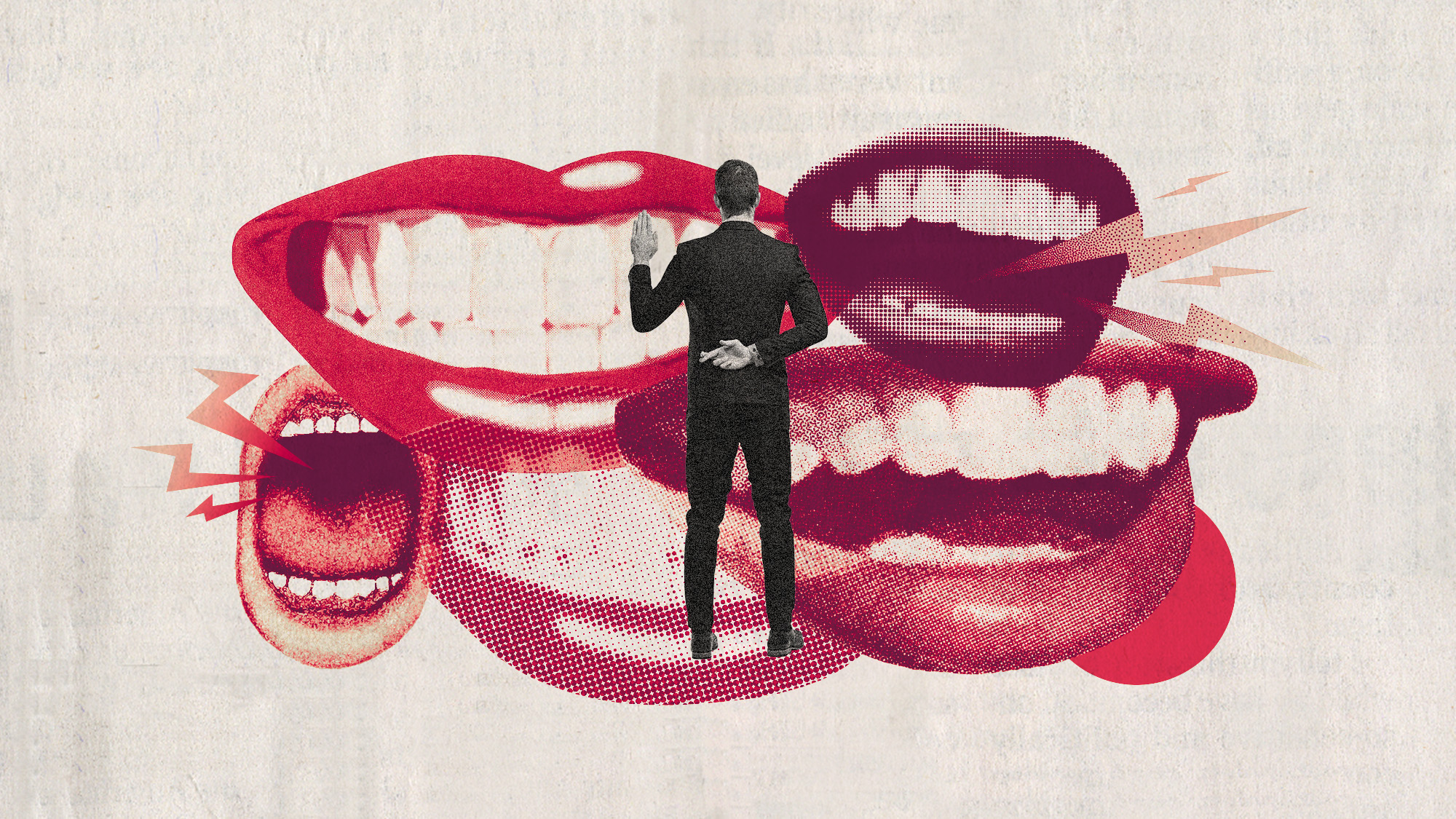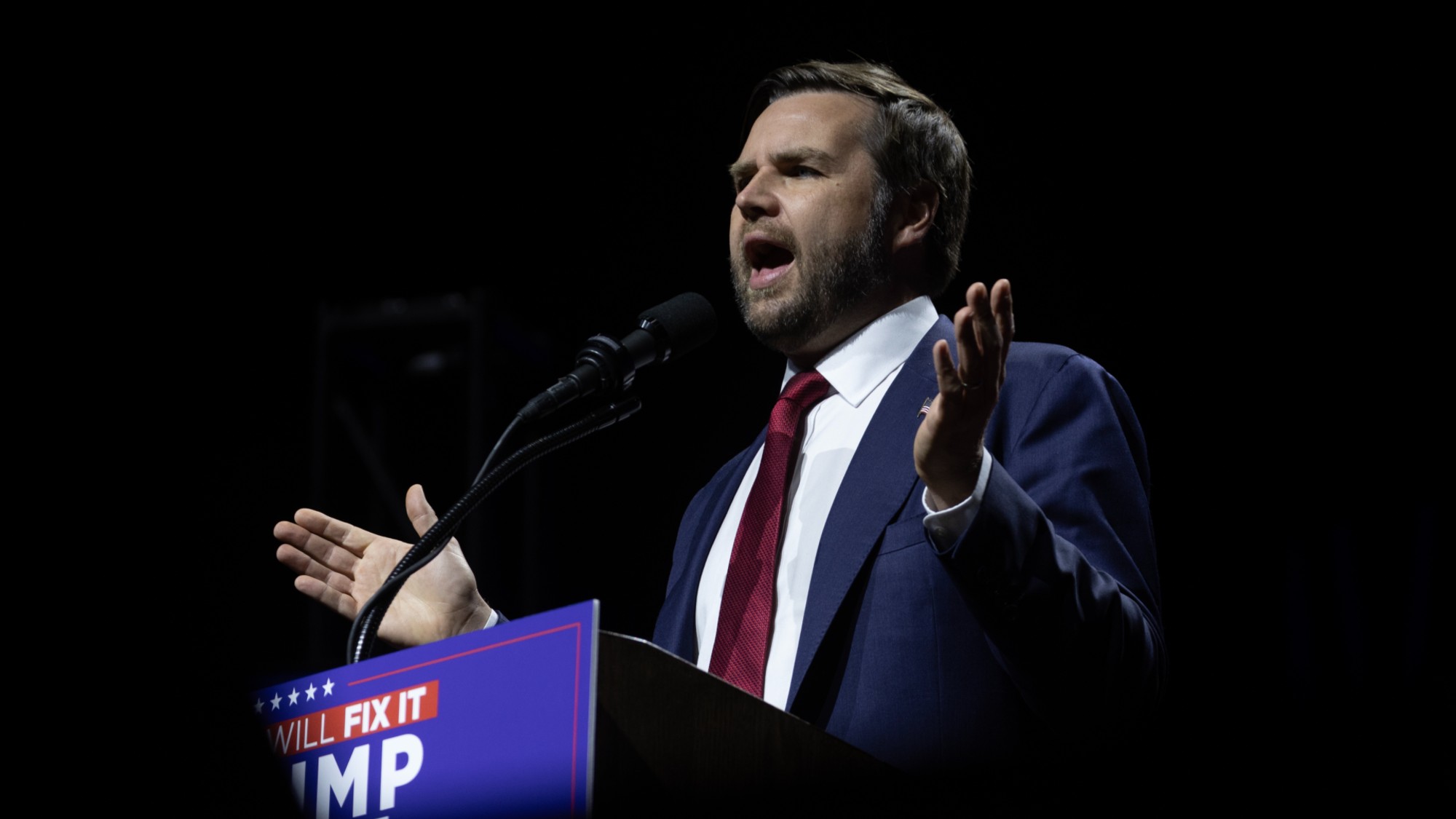Forced adoptions: why government won’t apologise
Victims and campaigners renew calls for state to admit responsibility for historic scandal in light of new evidence

A free daily email with the biggest news stories of the day – and the best features from TheWeek.com
You are now subscribed
Your newsletter sign-up was successful
Hundreds of women forced to give their babies up for adoption are renewing their calls for the UK government to follow Scotland and Wales in issuing a formal apology, in light of new evidence.
Dr Michael Lambert, a historian at Lancaster University, uncovered archival evidence that he believes shows responsibility does lie with the state.
Lambert told BBC Radio 4’s Today programme that he believes a lengthy “trail of exchange” within the civil service, and the “final reply”, proves that the government knew “in no uncertain terms” that language like “forced” and “no choice” were being used by adoption agencies. It demonstrates “government involvement” in the process, he added.
The Week
Escape your echo chamber. Get the facts behind the news, plus analysis from multiple perspectives.

Sign up for The Week's Free Newsletters
From our morning news briefing to a weekly Good News Newsletter, get the best of The Week delivered directly to your inbox.
From our morning news briefing to a weekly Good News Newsletter, get the best of The Week delivered directly to your inbox.
A landmark report by the Joint Committee on Human Rights (JCHR), published last July, called on the UK government to formally apologise, saying that it bore the ultimate responsibility for the “pain and suffering” of both women and children, caused by “public institutions and state employees that railroaded mothers into unwanted adoptions”.
In its response to the JCHR’s report, the UK government said in March that it was “sorry on behalf of society for what happened”, but said it was not “appropriate for a formal government apology to be given, since the state did not actively support these practices”.
Looking forward, the Labour Party would also be “expected to come under pressure to commit to issuing a formal apology”, said The Guardian, “should it win the next general election”.
What happened?
Jill Killington, who was forced to give up her baby son when she was 16, told the Today programme: “It will make a huge difference to hopefully having the truth and the research done, that the state was involved in forced adoptions. It would mean more than anybody can imagine, actually, it would bring justice and vindication for all of us who were affected.”
A free daily email with the biggest news stories of the day – and the best features from TheWeek.com
Victims and campaigners believe that single mothers and children were “forced apart” because of government legislation and adoption policy. “I don’t know how the government can continue to take the line they have,” she said.
An estimated 185,000 young, mostly unmarried, women in England and Wales were forced into giving up their babies between 1949, when the first Adoption Act was passed, and 1976, when the second Adoption Act came into force, according to the JCHR report.
The conclusion, entitled “The Violation of Family Life”, said unmarried women of the time “faced secrecy and shame from the earliest stages” of pregnancy, and many would have “seized the chance” to keep their children.
The inquiry, which covered women affected in England and Wales (there are separate inquiries in Scotland and Northern Ireland), heard “harrowing” testimony from women, many of whom suffered lifelong shame and stigma.
Some women told the inquiry that they were abused in the state-run or religious mother-and-baby homes where they were sent, as “a deliberate punishment” for the “transgression” of being pregnant while unmarried.
“The mothers’ only ‘crime’ was to have become pregnant while unmarried. Their ‘sentence’ was a lifetime of secrecy and pain,” said Harriet Harman, Labour MP and the JCHR’s chair.
Who has apologised?
In contract to the UK government position, Nicola Sturgeon (then the Scottish first minister) expressed a “sincere, heartfelt and unreserved” apology to the Scottish women and families affected.
She “fought back tears”, said the Daily Mail, when she apologised to the estimated 60,000 Scottish women whose babies were taken in the same time period.
It was time to “acknowledge the terrible wrongs that have been done”, she told MSPs in Holyrood, watched by victims and campaigners.
One Scottish woman described being sent to England to a Christian mother-and-baby home when she was just 17. “We were absolutely thrown to the wolves,” Marion McMillan told BBC Radio Scotland. A formal apology would bring “a great measure of healing” to both mothers and adoptees, she said.
In April, the Labour-led Welsh government said it was “truly sorry”. “Regardless of the societal pressures or social norms of the day, such cruelty should never be an acceptable part of our society in Wales,” said Julie Morgan, deputy minister for social services in Wales.
The “appalling historical practices” had a “diverse and long-lasting” impact on mothers, adoptees and their extended family members.
However, “the UK government makes its own decisions. They have said they are not making a formal apology.”
Why has the UK government not done so?
“These adoption practices were wrong,” the UK government said. “We recognise the pain and distress that occurred as a result and are profoundly sorry that so many people have suffered due to these practices. We acknowledge the lifelong impact that this has had on so many.”
But “while we cannot undo the past, we have strengthened our legislation and practice to be built on empathy,” a spokesperson told Sky News.
The UK Adult Adoptees Association described the government response as “cowardly” and “pathetic”, and the Movement for an Adoption Apology called it “an insult”.
Australia was the first country in the world to issue a “formal apology for forced adoptions”, said BBC News, “taking responsibility for the practice” in 2013. It then committed A$11.5 million over four years to help those affected.
Ireland formally apologised to former residents of mother-and-baby homes in 2021 for the treatment they had faced, and agreed an €800m package for survivors. About 34,000 people are thought to be eligible, and will each be entitled to up to €65,000.
Harriet Marsden is a senior staff writer and podcast panellist for The Week, covering world news and writing the weekly Global Digest newsletter. Before joining the site in 2023, she was a freelance journalist for seven years, working for The Guardian, The Times and The Independent among others, and regularly appearing on radio shows. In 2021, she was awarded the “journalist-at-large” fellowship by the Local Trust charity, and spent a year travelling independently to some of England’s most deprived areas to write about community activism. She has a master’s in international journalism from City University, and has also worked in Bolivia, Colombia and Spain.
-
 The ‘ravenous’ demand for Cornish minerals
The ‘ravenous’ demand for Cornish mineralsUnder the Radar Growing need for critical minerals to power tech has intensified ‘appetite’ for lithium, which could be a ‘huge boon’ for local economy
-
 Why are election experts taking Trump’s midterm threats seriously?
Why are election experts taking Trump’s midterm threats seriously?IN THE SPOTLIGHT As the president muses about polling place deployments and a centralized electoral system aimed at one-party control, lawmakers are taking this administration at its word
-
 ‘Restaurateurs have become millionaires’
‘Restaurateurs have become millionaires’Instant Opinion Opinion, comment and editorials of the day
-
 Can foster care overhaul stop ‘exodus’ of carers?
Can foster care overhaul stop ‘exodus’ of carers?Today’s Big Question Government announces plans to modernise ‘broken’ system and recruit more carers, but fostering remains unevenly paid and highly stressful
-
 ‘It’s hard not to feel for the distillers’
‘It’s hard not to feel for the distillers’Instant Opinion Opinion, comment and editorials of the day
-
 Five takeaways from Plaid Cymru’s historic Caerphilly by-election win
Five takeaways from Plaid Cymru’s historic Caerphilly by-election winThe Explainer The ‘big beasts’ were ‘humbled’ but there was disappointment for second-placed Reform too
-
 Taking the low road: why the SNP is still standing strong
Taking the low road: why the SNP is still standing strongTalking Point Party is on track for a fifth consecutive victory in May’s Holyrood election, despite controversies and plummeting support
-
 Nicola Sturgeon's memoir: making the personal political
Nicola Sturgeon's memoir: making the personal politicalTalking Point Former Scottish first minister attempts to set record straight in 'Frankly' but does she leave more questions than answers?
-
 Should lying in politics be a criminal offence?
Should lying in politics be a criminal offence?Today's Big Question Welsh government considers new crime of deliberate deception by an elected official
-
 'Food tourism as we've known it has become a victim of its own success'
'Food tourism as we've known it has become a victim of its own success'Instant Opinion Opinion, comment and editorials of the day
-
 'Vance stands at a crossroads'
'Vance stands at a crossroads'Instant Opinion Opinion, comment and editorials of the day